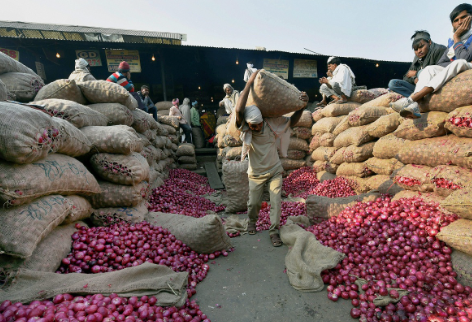Devinder Sharma
The year was 2006. There was excitement in the air. Throwing out the Agricultural Produce Market Committee (APMC) Act, Bihar had undertaken futuristic agricultural market reforms. With no mandis coming in the way, sarkari economists and policy-makers were exuberant at the immense possibilities of reaching more income into the hands of the farming community, thereby turning Bihar into a land of prosperity.
In the absence of regulated mandis, economists had predicted a lot of private investments to flow in, thereby helping in the setting up of modern private market yards and purchase centres. Since there would be no APMC mandis, there would also be no Minimum Support Price (MSP), which means private players would be able to give farmers a higher price. That is what was said at that time.
Fourteen years later, Bihar still leads the pack of states that form the BIMARU states. There is hardly a year when unscrupulous traders have not transported truckloads of wheat and paddy to be sold in Punjab and Haryana mandis. The reason why traders found it economical to transport wheat and paddy all the way from Bihar was primarily because the prices private trade offered back home was much less. Against a procurement price of wheat at `1,925 per quintal this year, wheat farmers in Bihar were not getting more than `1,500 to 1,600. No wonder, while Punjab and Haryana farmers have gained from the delivery of MSP year after year, farmers in Bihar continued to suffer. The argument that Bihar farmers could sell their produce to anyone, anywhere within the state failed to pull them out of poverty.
There are two ways of looking at this. First, in the absence of an assured MSP being given to farmers year after year, the average income of a rural household in Bihar remains low at `7,175 per month. Compare this with the average in Punjab, which according to a study by NABARD stands at `23,133 per household. Much of it is because of a higher price realisation from the MSP system. This year alone, for the wheat harvesting season, Punjab farmers received a total of `26,000 crore by way of wheat MSP. This has bolstered the rural economy of Punjab. Secondly, a majority of the lakhs of migrant workers who underwent the trauma of walking home or cycling home, or travelled by buses and trains to return home, comprised workers from Bihar. If instead of dismantling APMC mandis, Bihar had in turn laid a strong network of mandis and village roads like in Punjab, perhaps the number of migrants from Bihar would have been far less. If agriculture was profitable in Bihar, I see no reason why rural population from Bihar would have migrated in such a big proportion.
The Bihar experiment with agricultural market reforms has failed. If the APMC mandis are gradually dismantled in Punjab, and the government subsequently withdraws from procuring wheat and paddy at MSP, will Punjab farmers also become like Bihar farmers? Although agriculture minister Narender Singh Tomar has clearly said that the series of reforms being introduced through the three ordinances will not touch MSP and APMC mandis, senior cabinet minister NitinGadkari has said that MSP is higher than the domestic market prices as well as international prices, and the government will need to find a viable solution. This is exactly what the CII and FICCI have been demanding for several years now.
Even though the minister for agriculture has said that the government does not intend to dilute the provisions of MSP, the fact is that this is discriminatory against the APMC network. This is despite the claims the government has come up with, of the ‘One Country, Two Markets’ system, whereby traders and private players buying outside the APMC market yards will not have to pay any tax, whereas those trading inside the premises will pay three per cent mandi tax and three per cent tax towards rural development fund;a total of 6 per cent in Punjab.
As the Chamber of Association of Maharashtra and Trade (CMIAT) has said, in the absence of a level-playing field, the APMC mandis will gradually become redundant over a period of time. This is something that Punjab and Haryana, with a robust APMC mandi network, have to be worried about.
Further, let us not forget that a few months back, citing the recommendations of the Commission for Agricultural Costs and Prices (CACP), the Prime Minister’s Office had written to the Punjab government asking why the open-ended procurement of wheat and rice should not be discontinued. This means the government is keen on reducing procurement, thereby also reducing the outgo on MSP. The Chief Economic Advisor had recently called for restricting food procurement for only 20 per cent population as compared to providing rations for 67 per cent population under the National Food Security Act. Reducing procurement automatically means reducing the payment of MSP to farmers.
Over the past few decades, Punjab has built a strong network of APMC mandis. With roughly 1,840 mandis, sub yards and purchase centres spread across the state, along with 70,000km of village roads, the vast agricultural marketing infrastructure is certainly the neighbour’s envy. Instead of opening these mandis to private competition, the challenge should be to set up private market yards in Bihar, Uttar Pradesh and other deficit areas. In 2019, only 3,000 tonnes was procured in Bihar, while in Uttar Pradesh, only 7 per cent procurement wasdone. In Punjab, 128-lakh tonnes of wheat have been procured this season.
In any case, the Shanta Kumar Committee tells us that only 6 per cent farmers across the country get the benefit of MSP. In other words, 94 per cent farmers are dependent on the markets. If markets were so efficient, there is no reason why agriculture distress should be so huge. If so, efficient farmers wouldn’t have been demanding a higher MSP and seeking more crops to be included under the MSP regime.
Considering that India has only about 7,000 APMC mandis, the best reform would be if the APMC mandi network is expanded to 42,000 mandis with the aim of providing a marketing platform in every 5-km radius. At the same time, trading should be mandatory on the MSP announced. Even in eNAMmandis, MSP should become the modal price. This is the reform that the country’s farmers need.
The writer is a food and trade policy analyst.






































